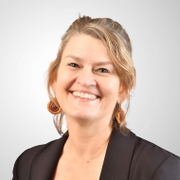Media release: Thursday 31 July 2025
Active Australia Innovation Challenge winners announced
Innovative ideas that empower people of all fitness levels and capabilities to increase their physical activity and help reduce heart disease have received a major boost.
The Heart Foundation, with support from the Australian Government, can today announce the eight recipients of this year's Active Australia Innovation Challenge (AAIC), with the winning projects showcasing the diversity of physical activities for many communities across the country.
From purpose-built sensory-friendly play spaces to mountain bike trails and cultural dance projects, this year's AAIC winners have been awarded a grant of up to $30,000 to help bring their idea to life.
Heart Foundation National Manager Health and Wellbeing Le Smith congratulated the successful projects and said with a funding pool of $200,000, the AAIC grants were a significant investment into the heart health of people in Australia.
"Heart disease remains Australia's leading cause of death, but it's largely preventable through lifestyle changes such as increased physical activity," Ms Smith said.
"Through our commitment to health equity, we recognise that physical activity must be inclusive and adaptable to suit different communities and needs. There's no one-size-fits-all solution when it comes to health.

Each of these winning projects demonstrates the need to think differently to increase physical activity across diverse groups and communities. They're turning big ideas into real impact-empowering communities to move more, live well, and reduce the burden of heart disease.
Le Smith
National Manager Health & Wellbeing
"The Heart Foundation looks forward to following the progress of each project and the impactful stories that will come with the AAIC support."
In addition to a grant to help bring their idea to life, AAIC winners also receive ongoing support from the Heart Foundation and opportunities to network with key stakeholders on heart health.
This year's AAIC winners are:
- State: South Australia
- Target demographic: Young people living with a disability
- Project summary: The Little Athletics SA Beyond Barriers Para Pathway Program aims to break down barriers by creating a fun, structured and inclusive para-athletics training squad that welcomes athletes of all abilities. It also provides adapted equipment, specialised coaching and an accessible training environment.
- State: Western Australia
- Target demographic: Aboriginal and Torres Strait Islander peoples, People with culturally and linguistically diverse backgrounds, People living with a disability, People in regional or remote areas
- Project summary: Students from Albany Secondary Education Support Centre's Community Work Crew (CWC) will design and construct a 3km mountain bike trail for 55 students with mild to severe intellectual disability, some of whom also have a physical disability. The mountain bike trail through bushland will connect to the school site, with the grant including the purchase of 11 additional bikes.
- State: New South Wales
- Target demographic: Aboriginal and Torres Strait Islander peoples, People with culturally and linguistically diverse backgrounds, People living with a disability.
- Project summary: This project is a new initiative trialling structured exercise as an option for eligible participants under the New South Wales' Work and Development Order (WDO) program. The program will be trialled in partnership with University of New South Wales to ascertain the effectiveness of exercise as a WDO option. People who meet specific criteria and experience social and economic challenges (e.g., experiencing homelessness or mental health conditions) can be referred by Marrickville Legal to participate in voluntary supervised exercise sessions, with debt reduction and improved health outcomes among the program benefits.
- State: New South Wales
- Target demographic: Aboriginal and Torres Strait Islander peoples, People living with a disability, People in regional or remote areas.
- Project summary: This long-term initiative will equip Aboriginal and Torres Strait Islander young people and students with a disability with the skills, training and qualifications (Certificate 3 in fitness) needed to work in the professional fitness industry.
- State: Victoria
- Target demographic: People with culturally and linguistically diverse backgrounds, People experiencing socio-economic disadvantage.
- Project summary: People living in some of the most socially disadvantaged suburbs in metropolitan Melbourne will benefit from the 'Together We Hoop' program which aims to engage adults who are mostly born overseas or newly arrived in Australia . The six-week programs will encourage people to safely start or return to exercise, with sessions including 45-minute on-court skills and fitness followed food and education sessions.
- State: Queensland
- Target demographic: People living with a disability.
- Project summary: People with disabilities in Ipswich will be able to improve their health, build social connection and overall wellbeing through the 'All In!' program. The year-long program, which is inspired by the 2032 Paralympics, will be run by experienced exercise physiologists and offers an adaptive CrossFit program and a Para Powerlifting program.
- State: South Australia
- Target demographic: People (children) living with a disability.
- Project summary: Data shows close to 1,500 children in the Adelaide Hills live with physical or intellectual disabilities. The Hills Inclusive Play project will provide the community with a purpose-built indoor disability-friendly and sensory playground which will include sling lifts, wheelchair-accessible swings, sensory-friendly zones and adaptive equipment for children with varying needs such as those with autism, low muscle tone or mobility impairments.
- State: Victoria
- Target demographic: Aboriginal and Torres Strait Islander peoples
- Project summary: The Koo-No-Wang Dance Project is a cultural revitalisation project aimed at using dance to preserve and pass down Aboriginal cultural practices. The initiative seeks to create an intergenerational space where cultural knowledge is embodied in the present, ensuring its future survival. Participants will also work together to harvest materials from Country to create costumes and body adornments.
Full details on the AAIC and each project are available on the Heart Foundation website: www.heartfoundation.org.au/active-australia-innovation-challenge






